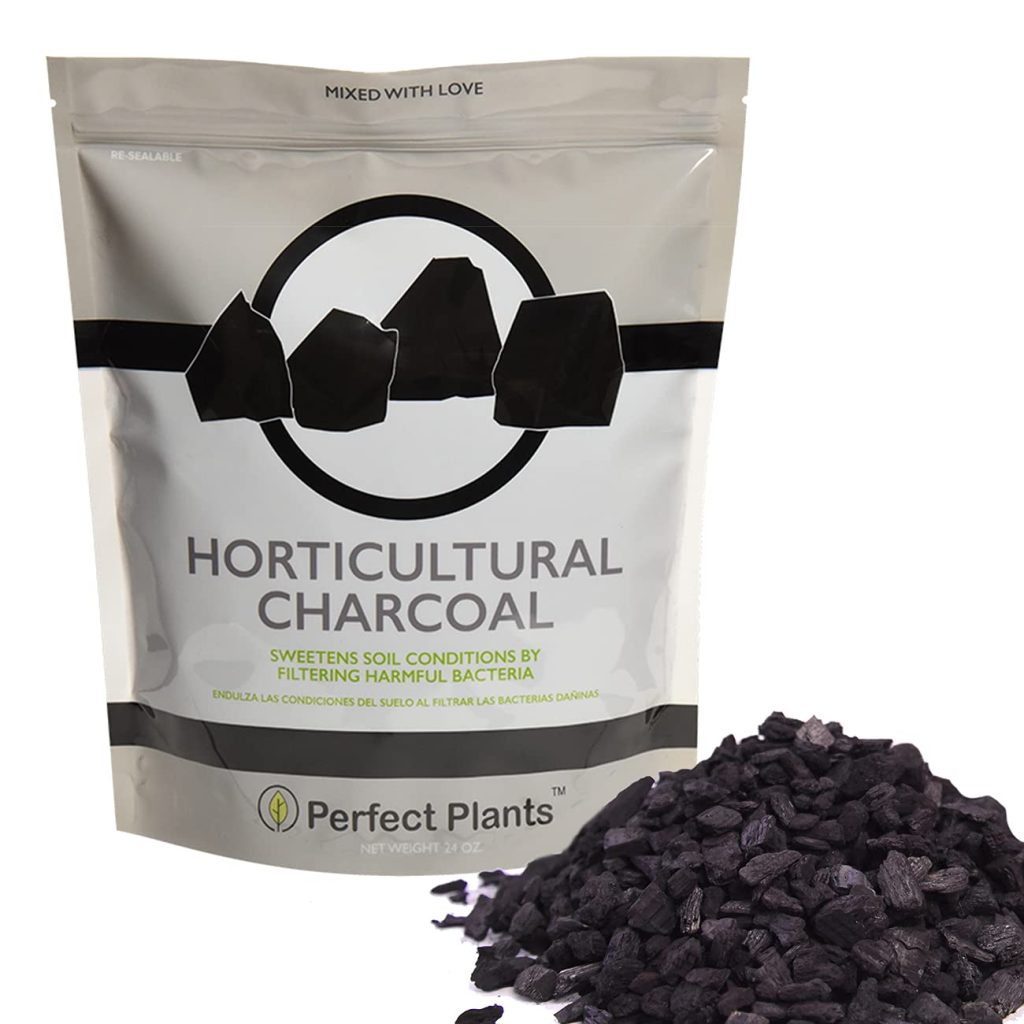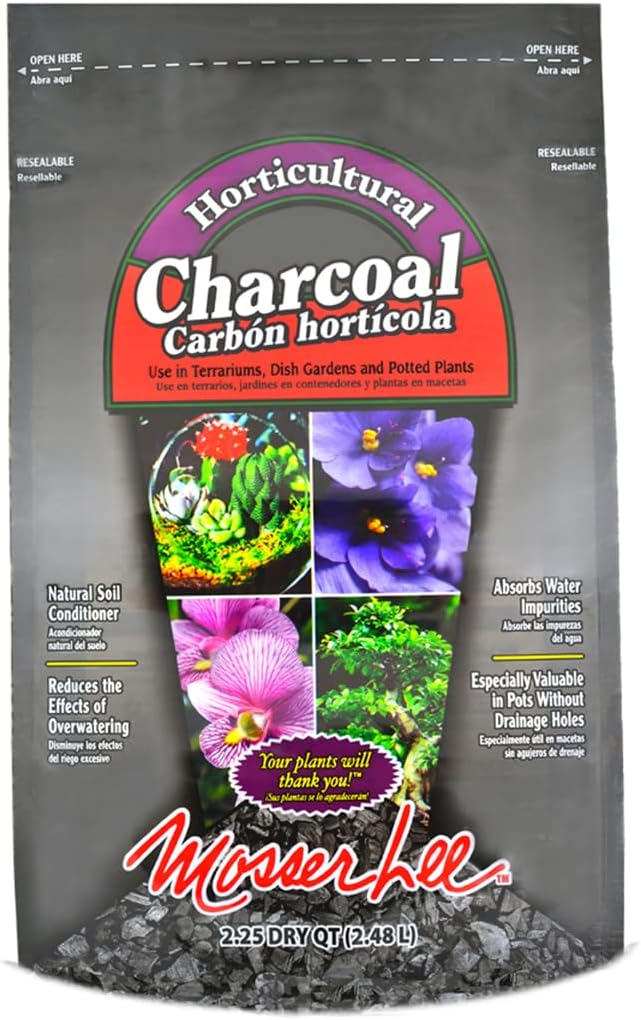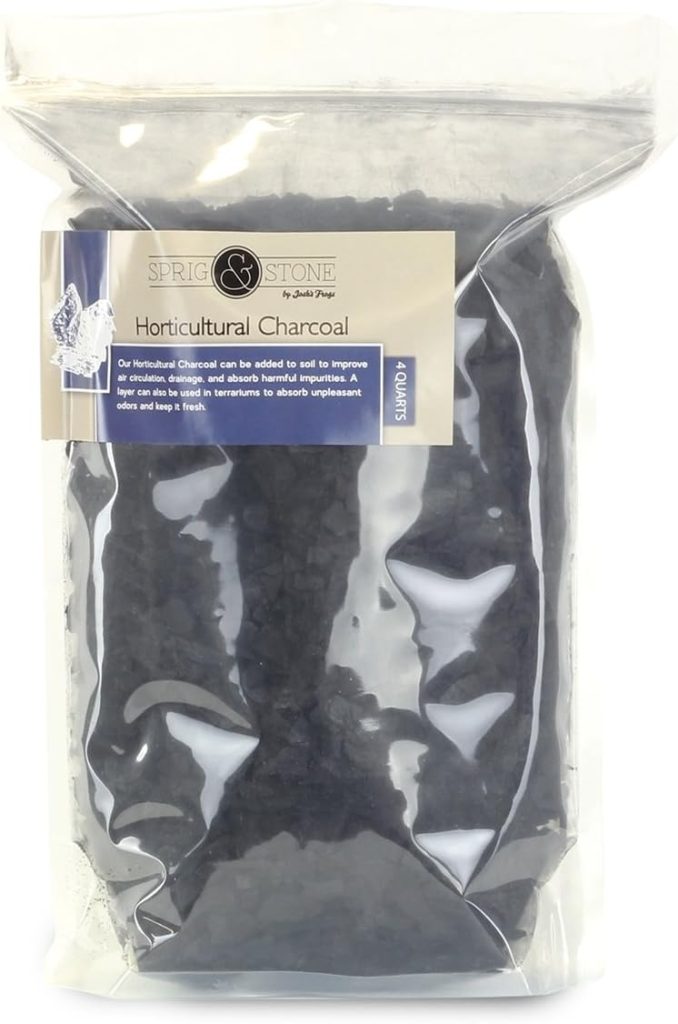Horticultural Charcoal
*As an Amazon Associate, I earn from qualifying purchases. Please see our disclosure to learn more.
Horticultural charcoal, also known as biochar, is a type of charcoal specifically produced for use in gardening and horticulture.
It is made from organic materials such as wood, coconut shells, or agricultural waste, which are heated in a low-oxygen environment through a process called pyrolysis. This process breaks down the organic material into a stable form of carbon.
Horticultural Charcoal
Horticultural charcoals offer several benefits in gardening:
- Soil Amendment: When mixed into the soil, they can improve soil structure, drainage, and aeration. It helps to create pore spaces in the soil, which allows for better water retention and root growth.
- Nutrient Retention: It has a porous structure that can hold onto nutrients, preventing them from leaching away with water. This can help improve nutrient availability to plants over time.
- Microbial Habitat: The porous structure of charcoal provides a habitat for beneficial soil microbes. These microbes can help break down organic matter, release nutrients, and improve soil health.
- pH balance: It is generally neutral in pH, so it can help to buffer soil pH and prevent extreme fluctuations that may be harmful to plants.
- Carbon Sequestration: Adding charcoal to soil can also help in reducing carbon dioxide levels in the atmosphere.
- Odor Control: They have absorbent properties that can help to reduce odors in compost bins or other areas of the garden.
Different Types
Here are various types of horticultural charcoal
- Wood-Based: Made from various types of wood, such as oak, bamboo, or coconut shells. Each type of wood can produce charcoal with slightly different properties.
- Coconut Shell: This type of charcoal has a high porosity and ability to retain moisture and nutrients in the soil.
- Bamboo: Bamboo charcoal has a high absorbency and ability to regulate soil pH levels.
- Rice Husk: Derived from rice husks, this variant is abundant in silica and can improve soil structure and water retention.
- Corn Cob: This type has a lightweight nature and ability to improve soil aeration.
- Sawdust: Produced from sawdust, this type is useful in horticulture for its ability to retain moisture and nutrients in the soil.
- Palm Kernel: Derived from palm kernel shells, they are rich in potassium and phosphorus, making it beneficial for plant growth.
- Sugar Cane Bagasse: Made from sugar cane waste, this type is rich in organic matter and can improve soil fertility.
- Activated Charcoal: Basically, activated charcoal is processed to increase its surface area and pore size. This enhances its ability to absorb toxins and improve soil quality.
- Biochar: Produced through the pyrolysis of organic materials, this horticultural charcoal is useful for soil fertility improvement, moisture retention, and carbon sequestration.



